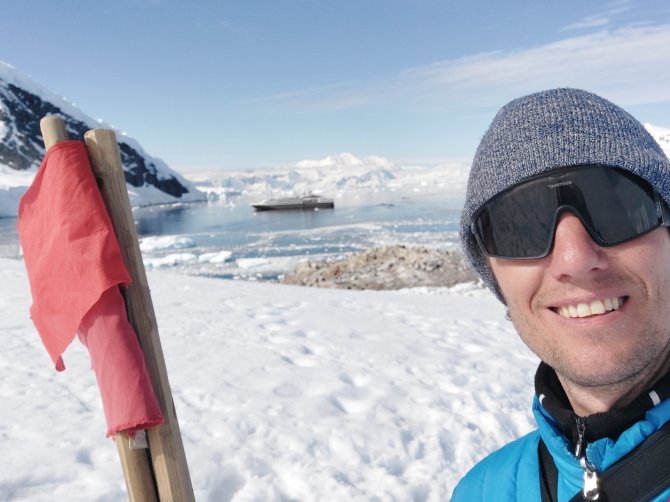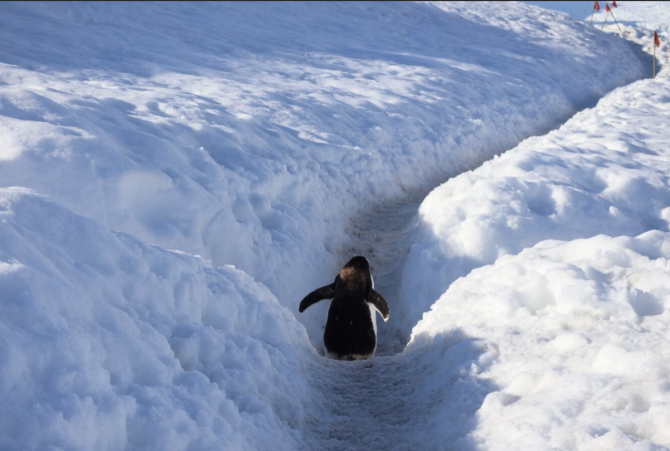Blog post
Antarctica Blog 6: "The Dutch Police"
Machiel Lamers and Daniela Cajiao are ENP researchers undertaking a scientific expedition to Antarctica in the context of the ANTARC-SHIP project. Their expedition takes place from mid-December 2023 until the end of January 2024.
Over the last six weeks we have been frequently referred to as “the Dutch Police”. We carried this name with pride. Maybe it was due to our blue jackets. Maybe it is a title that social scientists easily get when observing behaviours and asking difficult questions about compliance with environmental practices and regulations. For example, this season there were additional guidelines to avoid the spreading of the avian flu. Maybe we deserved the title as we were providing feedback, asked and unasked, when we observed people approaching wildlife, stepping on mosses or showing other forms of weird behaviour. We were lucky to be able to experience operations of various scientific stations, logistical bases and of tour operators. We were able to hitchhike from Deception on board of expedition cruise ship Le Boreal of the French operator Ponant, and experience five days of tourism operations as part of their expedition team, before crossing the Drake Passage back to South America.
Different regimes
With a few exceptions, everyone we approached was generally happy to talk about matters of compliance. Generally, most of the organisers of activities, from science and logistics to tourism, were trying their best to interpret and manage activities to the best of their knowledge. Nevertheless there are differences. Scientists and station personnel tend to have more freedom when walking around. They are regarded as professionals with a solid preparation before coming to Antarctica, capable to move around more independently. Tourist mobility is typically strictly controlled by the tour operator. For example, we observed quite a few landings on various sites of Deception Island demonstrating a consistent approach among tour operators of exploring the site for potential issues (dead animals, nesting birds, potential disturbances) by the expedition leader, marking walking routes for tourists with flags by the expedition team, as well as providing guidance, interpretation and assistance at critical points by members of the expedition team.

Highway patrol
One of the highlights during our stay on Le Boreal was a visit to Neko Harbour on the Antarctic Peninsula. Neko Harbour is a stunning site, surrounded by majestic glaciers and home to a penguin colony nesting on rocky areas sticking out of the snow fields. By walking from their nesting areas to the sea the pinguins carve out a myriad of routes, known as ‘penguin highways’. When approaching or sometimes crossing the highways penguins always have right of way. When walking up and down these hills penguins use a lot of energy, and blocking or scaring them is not appropriate in these areas. During the visit to Neko Harbour we acted as true police officers, informing tourists about the traffic rules when crossing a penguin highway, looking out for penguin traffic, and instructing them to wait or move on. “Monsiour, attend, attend. Arret! Madame, continuer. Pas de photographs! Three people, cross now!”. This magical morning we really felt we made ourselves useful as police officers enforcing real Antarctic regulations.

Keeping each other sharp on regulations and providing feedback is everyone’s responsibility in Antarctica. We have done our share the last weeks, and luckily we have seen plenty of tourist guides, station personnel and scientists do the same. In absence of a formal Antarctic police force, self-policing is the only way to minimize our impact on the ecosystem. It goes to the core of environmental stewardship!